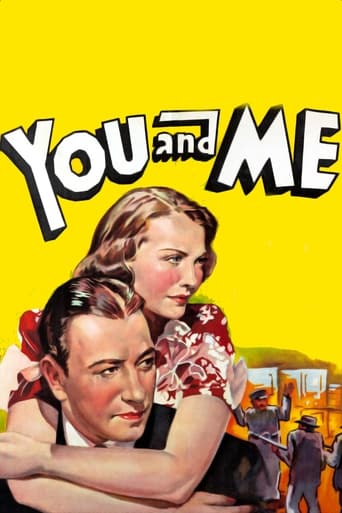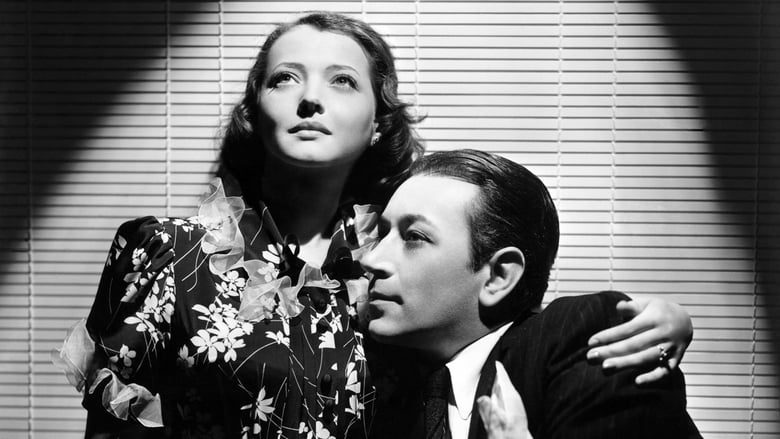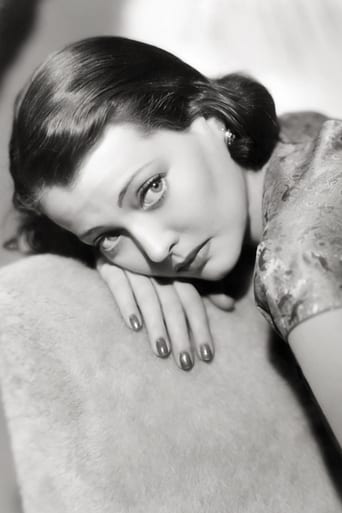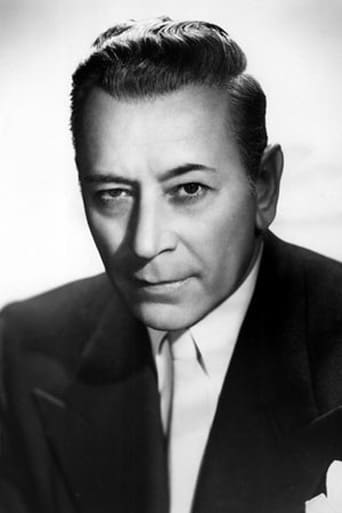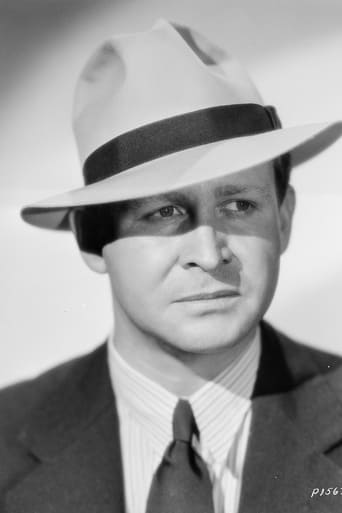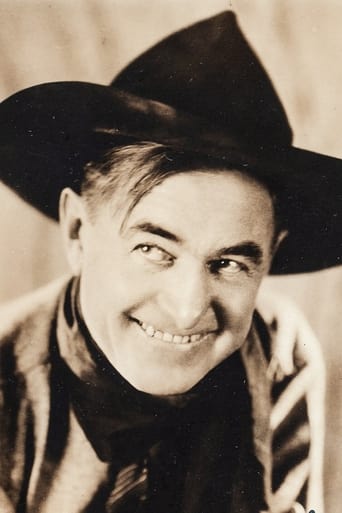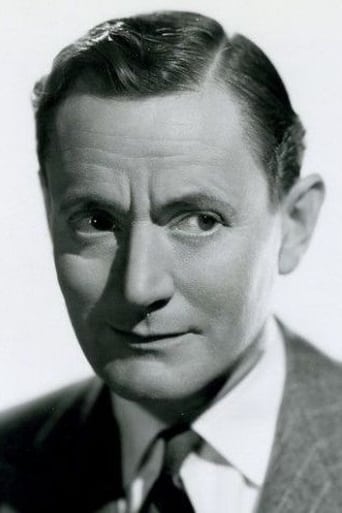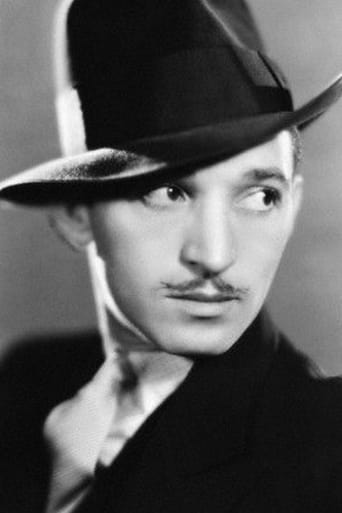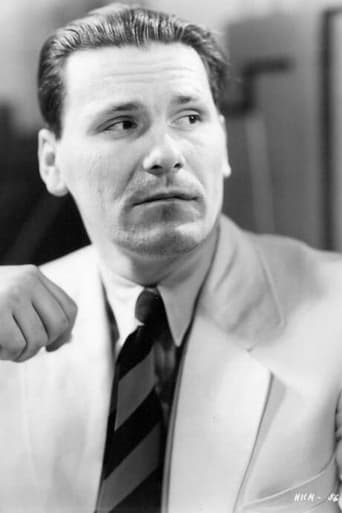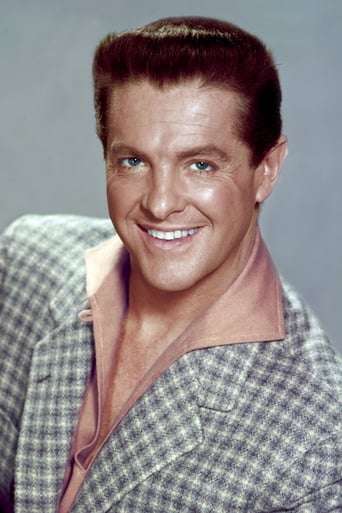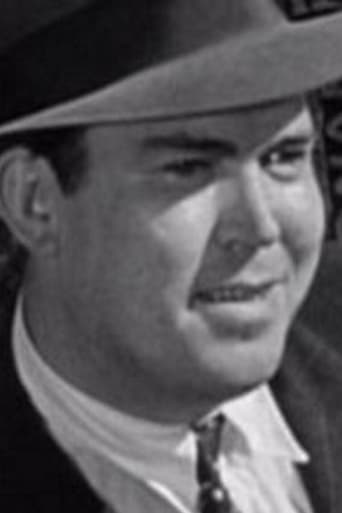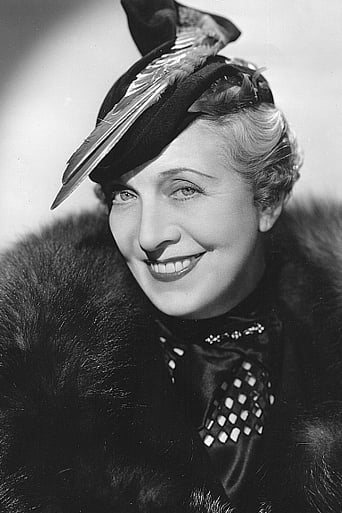Mr. Morris, the owner of a large metropolitan department store, gives jobs to paroled ex-convicts in an effort to help them reform and go straight. Among his 'employed-prison-graduates' are Helen Roberts and Joe Dennis, working as sales clerks. Joe is in love with Helen and asks her to marry him, but she is forbidden to marry as she is still on parole, but she says yes and they are married. In spite of their poverty-level life, their marriage is a happy one until Joe discovers she has lied about her past, in order to marry him. Disillusioned, he leaves, goes back to his old gang and plans to rob the department store.


Similar titles
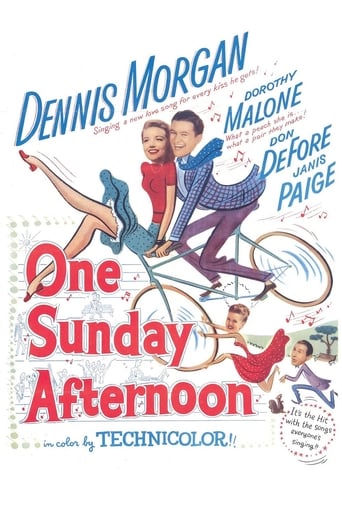
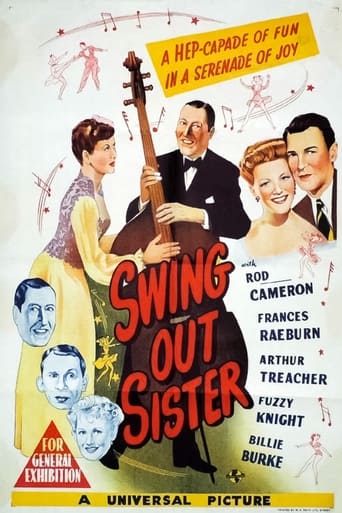
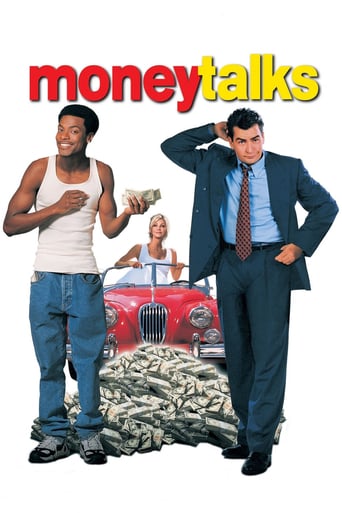
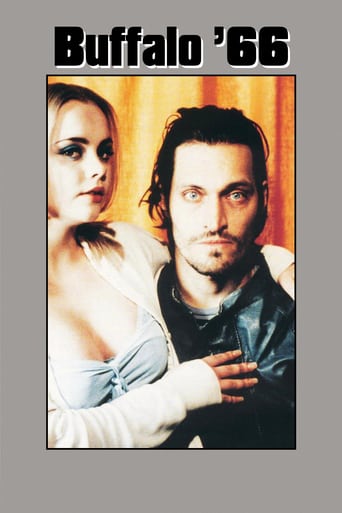
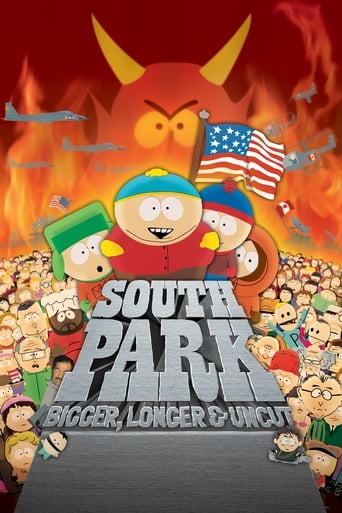
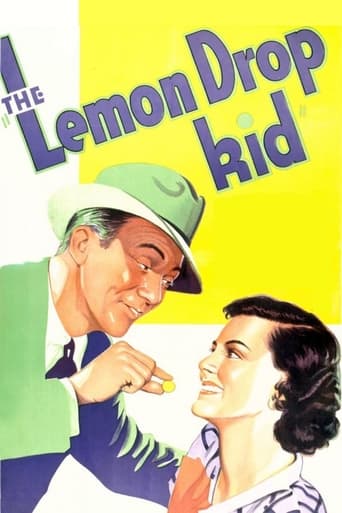
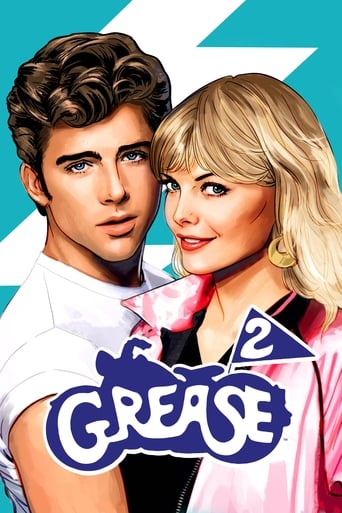
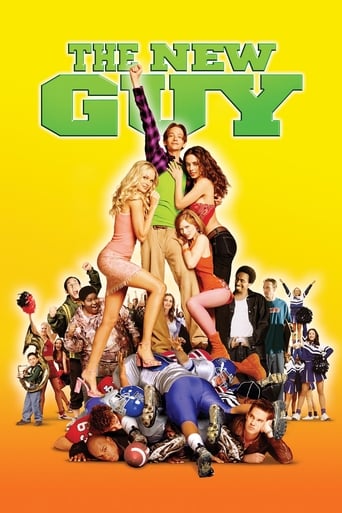
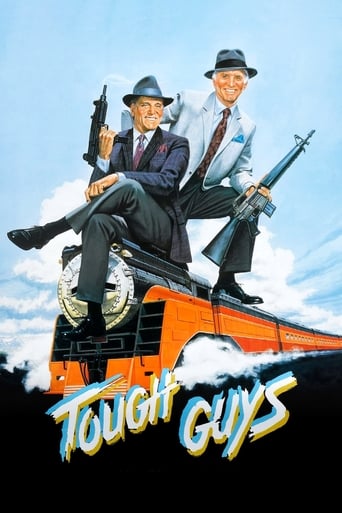
Reviews
A bizarre mixture of crime drama, comedy and social message movie, "You and Me" is another of Frtiz Lang's anti-capitalist experiments. He'd cite Brecht as the film's chief influence, but the film's avant-gardism is mostly played for laughs. The plot? Sylvia Sidney and George Raft play a pair of criminals on parole and working at a luxurious department store. The store owner has hired a band of similar cases - all ex convicts and petty thieves - to manage his business, a decision he may or may not regret. Much commotion ensues."You and Me" was destroyed by critics upon release, but today offers a number of interesting moments: the bustle of department stores, the clatter of cash registers, "You Can't Get Something For Nothing" warbling on the soundtrack like an anti-musical refrain. Elsewhere, clerks and businessmen are all safe-crackers or thieves, criminal heists echo police confiscations, Lang uses a number of distancing effects and the film's plot seems like a perverse reversal of Lang's earlier "Metropolis", Lang's criminals defending workplace exploitation as being more rational than outright theft.Much of Lang's plot follows a pair of clandestine lovers who break parole restrictions by getting married. Lang tries his hand at comedy, but he's best when solemn. Nevertheless, great shots abound – two lovers fleetingly touching hands whilst riding an escalator, the mirror image of gangster's crushing palms – including several musical sequences which blindsided contemporary critics. As is expected, Lang continues to shoot architecture well, most of which is Art Deco or sports modernist trimmings. The film's noir shadows suggest a crime movie, but the comedy and champaign suggest something else. What's going on? Lang called the film his Threepenny Opera.7.5/10 – For Lang fans only.
His first two American works were very dark and realistic (not to mention box office flops) so Fritz Lang set out to make "You and Me", a homage to "The 3 Penny Opera". Lang had admired Bertolt Brecht in his Berlin days and the working class spirit of the play hovered over the movie. Kurt Weill even wrote two songs - "You Can't Get Something for Nothing" and "My Good for Nothing Man" and between those themes the film made a case for the decent treatment of ex convicts and parolees who, at the time, were denied basic rights and even forbidden to marry.Hollywood's pinup girl for the Proletariat - beautiful Sylvia Sidney and Lang's muse at this time (she had the female lead in his three American movies to date) plays Helen, a sympathetic clerk in a large department store. Some peculiar scenes are set - a toy salesman (Roscoe Karnes) tough talks a child (Baby Jane Quigley) into buying a toy she doesn't want, another (George E. Stone) scares a customer with his safe cracking talk and Helen allows a shoplifter to walk free. It all becomes clear when you realise that most of the sales people are either ex cons or on parole and have been hired by benevolent store owner Mr. Morris (Harry Carey). There is even romance in the air between Helen and tough guy sporting goods salesman Joe (gorgeous George Raft). "There isn't a racket I don't know" - he could be talking crime, instead he is trying to sell a tennis racquet!!!Joe is going to California because his feelings for Helen are so strong but her feelings are stronger and she proposes!!! But Helen has a secret - she has also been in prison and her furtiveness in trying to keep her past a secret is making Joe extremely jealous. This is not your run of the mill gangster movie. It takes off on odd tangents, especially during a Christmas celebration for a group of ex cons, who reminisce about the good old days in prison, first wistfully, then longingly. "I know we had chicken once a year inside and now we can have it whenever we want, but it sure was nice to look forward to"!!! They begin a rhythmic chant "Stick With the Mob" which includes different codes tapped out on pipes and in a crazy way recalls the convict scenes in "M", as well as at the end when Joe enlists all his convict mates to scour the city looking for Helen.Joe finds out at this party that Helen is a parolee and he feels betrayed. He is more than happy to agree to do a job for Mick (gruff old Barton Maclaine), an associate from Joe's criminal past who hangs around the store hoping to coax him back into his bad ways. They plan to rob Morris's store but Gimpy (Warren Hymer) warns Helen - she in turn tells Morris and when the crooks show up there is a posse waiting for them. Not to hand them over to the police but for Helen to give them a lecture on why crime doesn't pay. My very favourite part in the movie - Helen drops her "sweet and sincere" persona and with the help of a blackboard, some chalk and mathematical calculations shows them why, instead of pocketing over $1,000 for their share, they would be lucky to see $100!!! Of course the gangsters are then sold on Helen - but not Joe who now adds "stool pigeon" to his list of grievances about Helen and also belittles her which the gang are not too happy about!!!Even though it wasn't a success, Lang did try to put a lighter spin into a theme that meant a lot to him - the spiritual bond of a criminal brotherhood which has stronger links than the law.
This is different, I'll say that. It's billed as a film noir but it's really a melodrama.It's a romance story involving the characters played by George Raft and Sylvia Sidney. This was my first look at Sidney and she wasn't all that appealing to me. Since then I have seen her many times in films spanning a number of decades, on film or in guest appearances on television shows. Although hardly a beauty, she always was interesting. So was George Raft, who played a very low-key role in this movie. He was best playing a tougher gangster.A man who received no billing in this movie but was really the third star was Warren Hymer, who played a dumb crook. There were also two musical numbers in this movie, one of them delivered in strange prose by the criminals.As I said, this was kind of a strange piece of entertainment. Director Fritz Lang wanted to make a statement about crime not paying but he wanted to tell it in a different format. Well, I can appreciate that but I think he could have done that in a more entertaining way because the middle of this film dragged way too much and might have lost a lot of viewers. The ending was inventive but a little corny, too.
Fritz Lang had a reputation for disliking american actors and actresses, but he made three films with Sidney; sadly, because the reviews and receipts were lacking, it was their final film together. You And Me has some spectacular shots of machinery and late 30's office work that stands up even today, with a clear message about industrialization, the "modern" work-place, and american society in general. The film also features magnificent music and song from Kurt Weill. This may not be as riveting as Fury, or as depressing as You Only Live Once, but it is indeed, a masterpiece! And George Raft is just fine, too.
